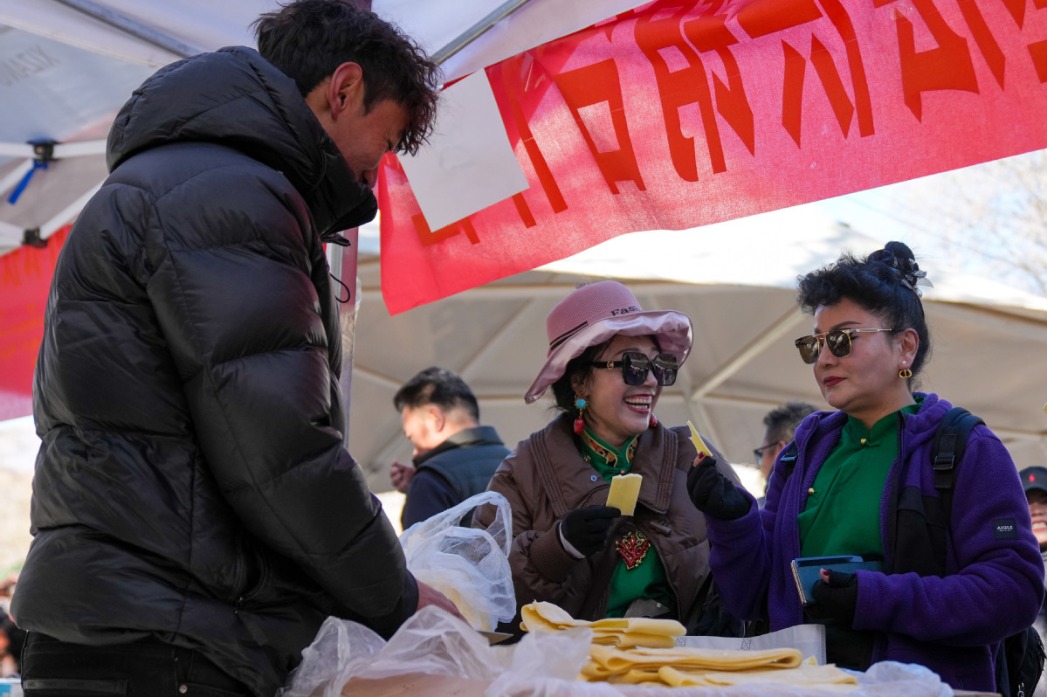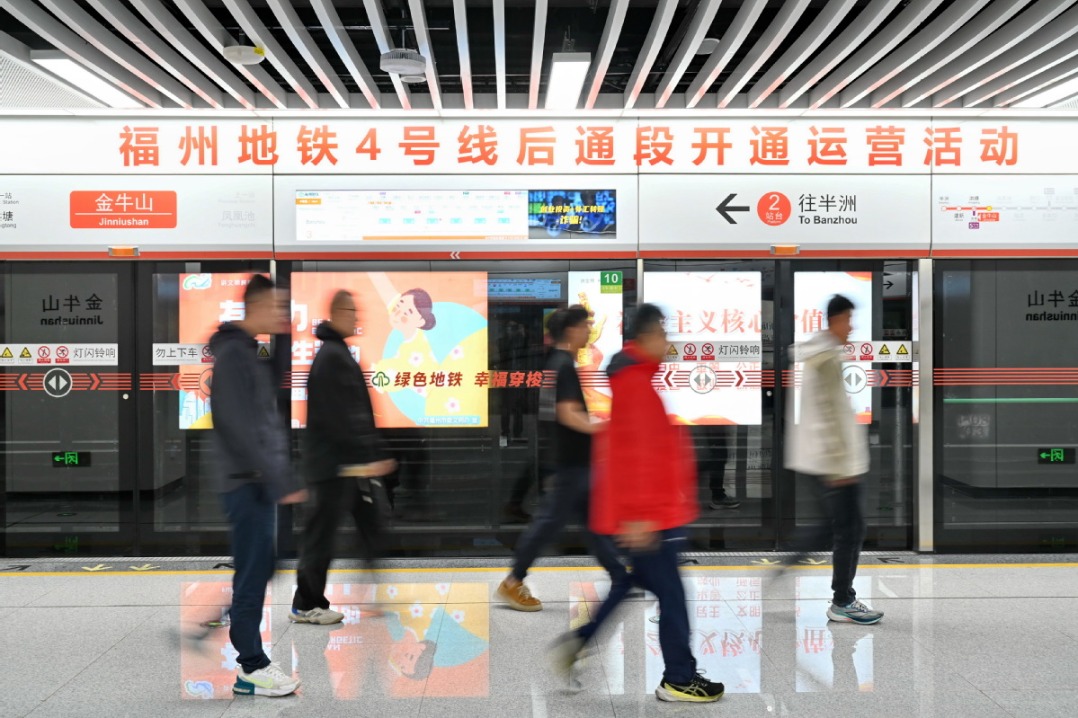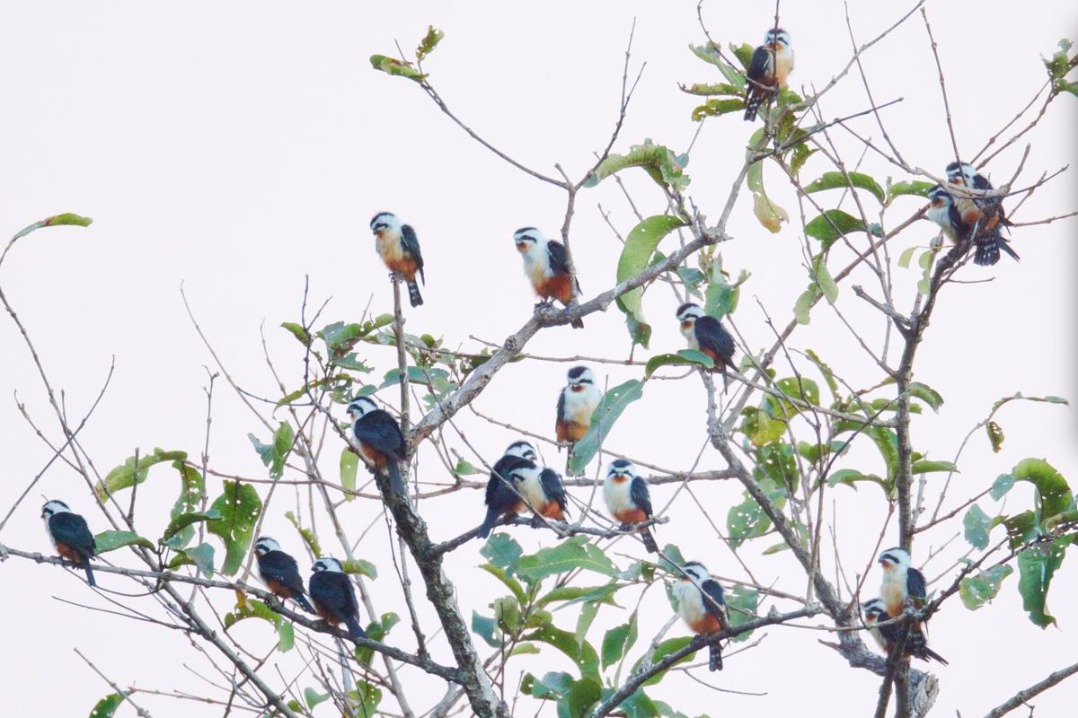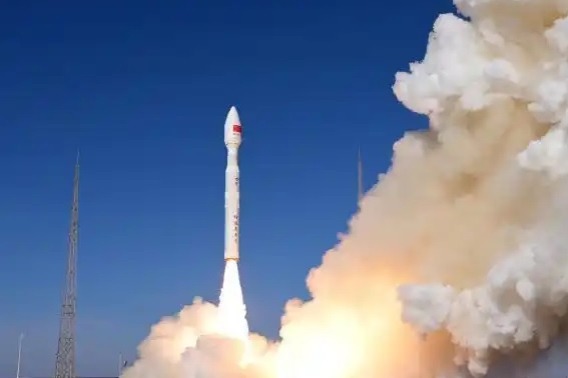Friendship witnessed by the sky - American pilots' bond with China

Editor's Note: To celebrate the 100th founding anniversary of the Communist Party of China, we are launching the "100 CPC Stories in 100 Days" series, featuring foreigners who witnessed and participated in the CPC's history and helped the world better understand the CPC. The following is the 20th story of the series.
In May 1978, headed by Paul Domke, members of the former United States Army Observation Group, commonly known as the Dixie Mission, visited China. When meeting these American friends, Deng Yingchao, vice-chairwoman of the Standing Committee of the National People's Congress and wife of the late Premier Zhou Enlai, gave them a special gift — a blooming rose. The rose awakened memories from many years ago.
On August 8, 1944, following a deafening roar of engine overhead in Changli county, Hebei province, a huge military plane crashed nearby. The CPC Committee of Changli County thought it was a Japanese plane, and immediately sent troops on a search operation. To their surprise, they found five parachuted American pilots. It turned out that they took off from the Chongqing air base that day to carry out a bombing raid on the Japanese home islands, but had to parachute to escape due to engine failure. Upon learning the situation, the Party Committee of Changli County put together a search and rescue team to look for others and found the other two crew members in one day. In the meantime, the rescued pilots were transferred to the CPC base.
The American pilots were greeted with utmost hospitality by the CPC and the people in the base. The Party Committee of Changli County organized a special welcoming party for them. The people in the base vacated the most spacious houses for the pilots and provided them with flour and eggs, and the local Women's National Salvation Association sent its members to mend and wash clothes for them. A young pilot named Hinsdell, who suffered a serious ankle injury while parachuting, was well taken care of.
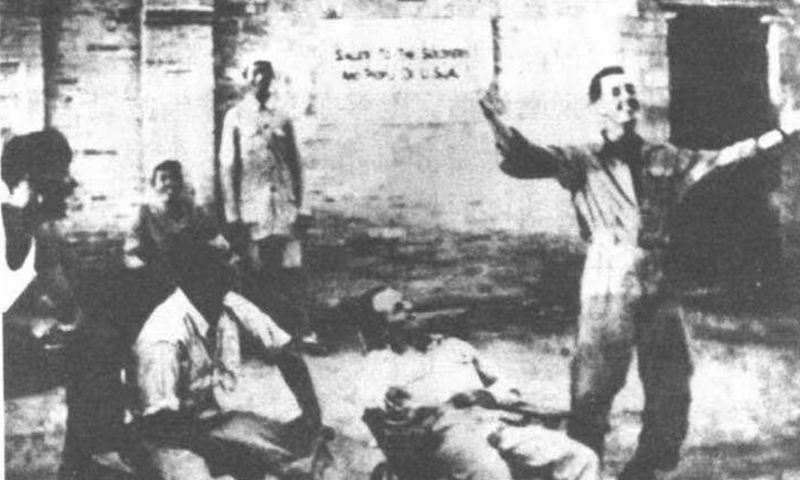
The Japanese army entrenched nearby soon learned about the American plane crash, and sent more than 100 soldiers to hunt for the crew. The local anti-Japanese armed forces were well prepared and ambushed and repulsed them. To ensure the safety of the pilots, the Headquarters of the Eighth Route Army decided to escort them to Yan'an. There, the American pilots were cordially received by Mao Zedong, Zhou Enlai, Zhu De and other CPC leaders. Mao gave each of them a blanket produced at a wool knitwear factory set up in Yan'an by overseas Chinese and told them that these blankets, though crude, were considered luxury goods by CPC members. During their stay in Yan'an, the American pilots also met their countrymen — members of the Dixie Mission, and eventually returned by US military planes.

Due to the hostile attitude of the United States toward the People's Republic of China, interactions between the two countries had been blocked. Although people in the two countries lost contact, their friendship did not fade. In 1972, the news came that China and the United States began to normalize relations. The CPC-rescued American pilots promptly asked Hinsdell's widow to visit China in 1973 as their representative. They carefully selected two plants of "peace" rose, a very popular rose among the American people, and asked Mrs. Hinsdell to take them to Chairman Mao and Premier Zhou as an expression of their gratitude to and affection for the Chinese people.
The rose given to Premier Zhou was planted in the courtyard by his wife, Comrade Deng Yingchao. In 1978, she picked a flower from the plant and gave it to the old friends of the Dixie Mission as a symbol of the friendship between Chinese and American people.
The story told by Deng Yingchao is just one of many stories of the CPC helping American pilots in China during the War of Resistance against Japanese Aggression. There are a lot of similar touching moments of reunion in the history of China-US exchanges. For example, during the second Annual US-China High-Level Consultation on People-to-People Exchange in 2011, the then Chinese State Councilor Liu Yandong told a story about an old photo from her home to the then US Secretary of State Hillary Clinton: Liu's father had led a team to rescue American pilots during the War of Resistance against Japanese Aggression, and three Chinese soldiers gave their lives during that operation. The US delegates attending the consultation were deeply moved. For another example, when Chinese Defense Minister Zhang Aiping visited the United States in 1984, he met three American pilots that he had rescued 40 years ago. At that gathering, the old "comrades-in-arms" hugged each other tightly.

According to incomplete statistics, more than 100 American pilots were rescued by the Eighth Route Army, the New Fourth Army and the militia forces under the leadership of the CPC during the War of Resistance against Japanese Aggression. Taking the rescue of American pilots as an important task, the CPC Central Committee put forward the slogan of "going all-out to rescue pilots of allied armies from air crashes", issued various orders, notices and bulletins, and even provided American pilots with maps showing the specific positioning of anti-Japanese forces behind enemy lines to help them escape.
A great many touching stories were recorded as the anti-Japanese military and civilians under the CPC leadership came to assist American pilots: In order to rescue an American pilot and cover his retreat, Lin Yingfa, vice battalion commander of the Seventh Regiment, the Second Military Division, Central Jiangsu Military Area, the New Fourth Army, led a squad of soldiers to guard a wooden bridge and block the Japanese army. The entire squad gave their lives. In order to rescue an American pilot, two soldiers of the Thirteenth Regiment, Ji-Re-Liao Military Area, the Eighth Route Army, died in a fierce battle against Japanese forces. In order to prevent a B-29 bomber, an advanced US aircraft, from falling into the hands of the Japanese forces, the Independent Regiment of the New Fourth Army in Yanfu Military Area fought hard with the Japanese forces for a day and a night in heavy rains until all the important parts of the plane wreckage were disassembled and transferred. The regiment paid a heavy price in the operation: four soldiers died and many others were injured. And in order to send the rescued pilots back, thousands of farmers mobilized by the Eighth Route Army in Taihang Military Area built an airstrip in half a month for the take-off and landing of US military planes.
Apart from expressing their gratitude to the CPC, the rescued American pilots also had the opportunity to see what kind of troops the Eighth Route Army and the New Fourth Army were under the leadership of the CPC. On 13 August 1944, Jiefang Daily published two letters. The first was written by Claire Lee Chennault, Commander of the Fourteenth Air Force of the US Army, to Zhu De, Commander in Chief of the Eighth Route Army. Chennault expressed his gratitude to the CPC-led guerrilla for rescuing American pilots in China. He wrote, "Words are scarcely sufficient to appraise you of the gratitude of myself and the officers and men in my command for your concern as to the welfare of crew members. I am indeed appreciative." The other was written by five American pilots to the Dongjiang Column, saying that although they have read about and studied all the great armies in history, they have never seen one as brave as the Column. They said that one day the world will know about the Column's great work and they considered it an honor to salute the Column and call the guerrilla fighters their brothers. The "Evasion in North China" document issued by the US military in June 1945 read: "There are two Communist armies in North China, the 18th Group (8th Route) Army and the New 4th Army. Morale of the Communist troops is, in general, very high. They know what they are fighting for. Discipline and order are well maintained. Relations between officers and men are friendly and informal."
- Photographer captures wild mandarin ducks in Guizhou
- Infrared cameras and drones record Tarim red deer in Xinjiang
- Beijing issues alerts for snowstorms and road icing
- Beijing district recovers nearly 100 million yuan in scam losses
- China's immigration hotline adds French language support
- Zootopia 2 fans fuel hazardous trend in online snake purchases


















